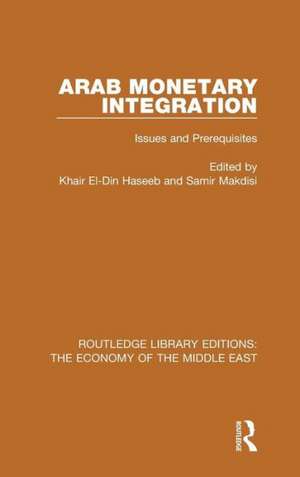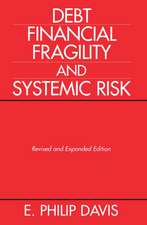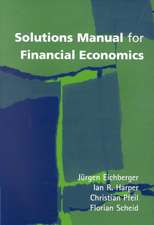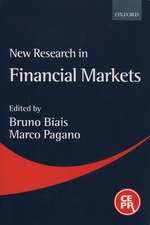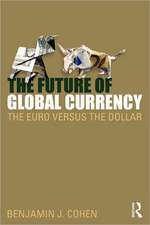Arab Monetary Integration (RLE Economy of Middle East): Issues and Prerequisites: Routledge Library Editions: The Economy of the Middle East
Autor Khair El-Din Haseeb, Samir Makdisien Limba Engleză Hardback – 17 noi 2014
First published in 1981.
Din seria Routledge Library Editions: The Economy of the Middle East
- 16%
 Preț: 216.07 lei
Preț: 216.07 lei - 34%
 Preț: 679.09 lei
Preț: 679.09 lei - 18%
 Preț: 782.44 lei
Preț: 782.44 lei - 34%
 Preț: 995.46 lei
Preț: 995.46 lei - 17%
 Preț: 215.81 lei
Preț: 215.81 lei - 34%
 Preț: 767.47 lei
Preț: 767.47 lei - 54%
 Preț: 574.68 lei
Preț: 574.68 lei -
 Preț: 354.54 lei
Preț: 354.54 lei -
 Preț: 85.56 lei
Preț: 85.56 lei - 16%
 Preț: 216.07 lei
Preț: 216.07 lei - 16%
 Preț: 216.07 lei
Preț: 216.07 lei - 34%
 Preț: 625.44 lei
Preț: 625.44 lei - 16%
 Preț: 216.07 lei
Preț: 216.07 lei - 15%
 Preț: 701.45 lei
Preț: 701.45 lei - 33%
 Preț: 9802.10 lei
Preț: 9802.10 lei - 16%
 Preț: 130.21 lei
Preț: 130.21 lei - 16%
 Preț: 216.07 lei
Preț: 216.07 lei - 16%
 Preț: 216.07 lei
Preț: 216.07 lei - 17%
 Preț: 190.88 lei
Preț: 190.88 lei - 17%
 Preț: 142.32 lei
Preț: 142.32 lei - 17%
 Preț: 142.32 lei
Preț: 142.32 lei - 16%
 Preț: 216.07 lei
Preț: 216.07 lei - 17%
 Preț: 148.43 lei
Preț: 148.43 lei - 16%
 Preț: 216.07 lei
Preț: 216.07 lei - 17%
 Preț: 142.32 lei
Preț: 142.32 lei - 16%
 Preț: 216.07 lei
Preț: 216.07 lei - 33%
 Preț: 529.26 lei
Preț: 529.26 lei - 17%
 Preț: 247.40 lei
Preț: 247.40 lei
Preț: 1289.11 lei
Preț vechi: 1572.08 lei
-18% Nou
Puncte Express: 1934
Preț estimativ în valută:
246.67€ • 258.20$ • 205.31£
246.67€ • 258.20$ • 205.31£
Carte tipărită la comandă
Livrare economică 31 martie-14 aprilie
Preluare comenzi: 021 569.72.76
Specificații
ISBN-13: 9781138811355
ISBN-10: 1138811351
Pagini: 477
Dimensiuni: 156 x 234 x 27 mm
Greutate: 0.93 kg
Ediția:1
Editura: Taylor & Francis
Colecția Routledge
Seria Routledge Library Editions: The Economy of the Middle East
Locul publicării:Oxford, United Kingdom
ISBN-10: 1138811351
Pagini: 477
Dimensiuni: 156 x 234 x 27 mm
Greutate: 0.93 kg
Ediția:1
Editura: Taylor & Francis
Colecția Routledge
Seria Routledge Library Editions: The Economy of the Middle East
Locul publicării:Oxford, United Kingdom
Cuprins
Part 1. Monetary Integration and Monetary Cooperation 1. On the Concepts, Objectives and Modalities of Monetary Integration J. Williamson 2. The Relationship Between the International Monetary System and Regional Monetary Systems R. Triffin Part 2. The Current Arab Monetary Situation and the Scope Available for Arab Monetary Cooperation 3. Analysis of the Financial Aspects of Arab Economic Cooperation and Opportunities for Monetary Cooperation B. Dajani 4. Trade and Exchange Regimes and the Exercise of Monetary Policy in the Arab Countries K. Nashashibi 5. The Arab Monetary Fund: Objectives and Performance A. Al-Sagban Part 3. Monetary Integration in Latin America, Europe and West Africa 6. Monetary Integration in Latin America J.G. del Valle 7. The European Monetary System and European Monetary Integration R. Masera and S. Rossi 8. The Experience of the West African Monetary Union R. Bhatia Part 4. Prospects for Arab Monetary Integration 9. The External Economic Positions of the Arab Countries and the Role of Financial Surpluses in Achieving Arab Monetary Integration A.S. Ali 10. Arab Monetary Integration: Benefits, Economic Obstacles and Modalities 10.1. Costs and Benefits A. Medio 10.2. Feasibility, Modalities and Selected Operational Issues M. Sakbani 11. The Role of the Arab Monetary Fund in Achieving Arab Monetary Integration F.A. Rasool 12. Basic Economics and Political Prerequisites for Achieving Arab Monetary Integration F. Morsi
Notă biografică
Khair El-Din Haseeb, Samir Makdisi
Descriere
Pre-eminent among the requisites for economic integration is monetary integration. It is the premise of the chapters in this book that if the Arab world is to achieve a closer degree of cooperation in economic and political spheres, the issue of monetary integration must be given much more attention. To this end the contributors to this book, who include well-known academics and economic experts from the Arab countries, Europe, the USA and Latin America, have looked at the experience of other areas of the world which have introduced monetary unity. They consider the experiences of Western Europe, Latin America and Western Africa, evaluating them with the objective of focusing on the various major issues which have to be coped with when planning for closer monetary cooperation. While the analysis concerning the scope for future Arab monetary integration revealed varying positions as to the factors which should be stressed and the pre-requisites which should be fulfilled, there emerged general agreement on certain major issues including the following: at the present time the Arab countries should strive to achieve partial rather than full monetary integration and to create the requisite conditions for such a move; economic and monetary integration should be viewed as mutually reinforcing rather than as successive processes; and the political will to achieve integration is a major pre-requisite for any move in that direction.
